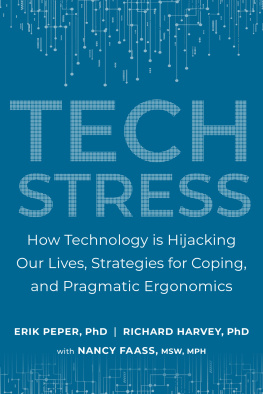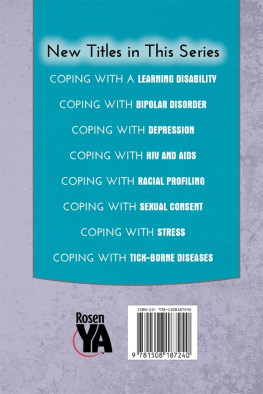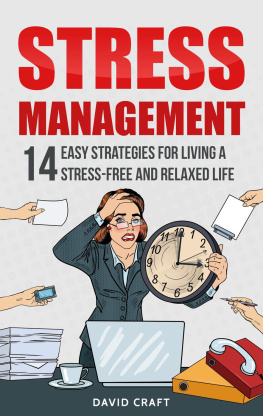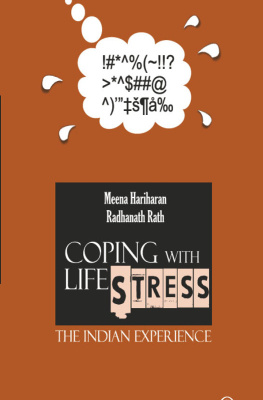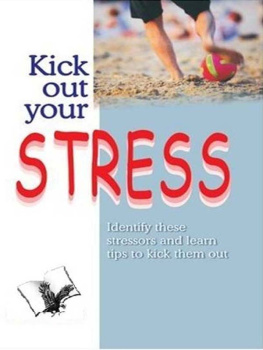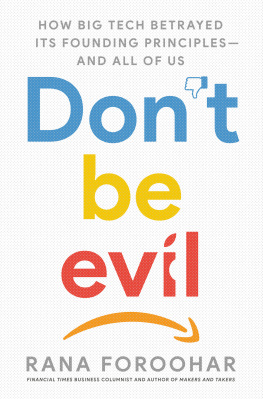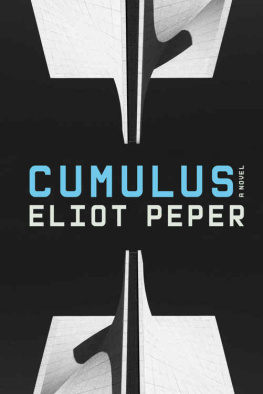Erik Peper Ph.D. - Tech Stress: How Technology is Hijacking Our Lives, Strategies for Coping, and Pragmatic Ergonomics
Here you can read online Erik Peper Ph.D. - Tech Stress: How Technology is Hijacking Our Lives, Strategies for Coping, and Pragmatic Ergonomics full text of the book (entire story) in english for free. Download pdf and epub, get meaning, cover and reviews about this ebook. year: 2020, genre: Romance novel. Description of the work, (preface) as well as reviews are available. Best literature library LitArk.com created for fans of good reading and offers a wide selection of genres:
Romance novel
Science fiction
Adventure
Detective
Science
History
Home and family
Prose
Art
Politics
Computer
Non-fiction
Religion
Business
Children
Humor
Choose a favorite category and find really read worthwhile books. Enjoy immersion in the world of imagination, feel the emotions of the characters or learn something new for yourself, make an fascinating discovery.
- Book:Tech Stress: How Technology is Hijacking Our Lives, Strategies for Coping, and Pragmatic Ergonomics
- Author:
- Genre:
- Year:2020
- Rating:5 / 5
- Favourites:Add to favourites
- Your mark:
- 100
- 1
- 2
- 3
- 4
- 5
Tech Stress: How Technology is Hijacking Our Lives, Strategies for Coping, and Pragmatic Ergonomics: summary, description and annotation
We offer to read an annotation, description, summary or preface (depends on what the author of the book "Tech Stress: How Technology is Hijacking Our Lives, Strategies for Coping, and Pragmatic Ergonomics" wrote himself). If you haven't found the necessary information about the book — write in the comments, we will try to find it.
Erik Peper Ph.D.: author's other books
Who wrote Tech Stress: How Technology is Hijacking Our Lives, Strategies for Coping, and Pragmatic Ergonomics? Find out the surname, the name of the author of the book and a list of all author's works by series.
Tech Stress: How Technology is Hijacking Our Lives, Strategies for Coping, and Pragmatic Ergonomics — read online for free the complete book (whole text) full work
Below is the text of the book, divided by pages. System saving the place of the last page read, allows you to conveniently read the book "Tech Stress: How Technology is Hijacking Our Lives, Strategies for Coping, and Pragmatic Ergonomics" online for free, without having to search again every time where you left off. Put a bookmark, and you can go to the page where you finished reading at any time.
Font size:
Interval:
Bookmark:

This comprehensive resource is invaluable and captures decades of research and learning through hands-on work with employees. Eriks and Ricks work breaks the cycle of injury and re-injury so often experienced in repetitive strain injuries. Once employers and employees understand and apply the concepts and tools within this book, they will never want to return to the monolithic ergonomic practices of the past.
Michael J. Martin, JD ARM, associate vice president Human Resources, Safety and Risk Management at California State University Maritime Academy
Tech Stress is a timely call for active intervention in our digitally saturated environment. Distilled from two decades of collaborative research and successful treatments, the book provides us sobering lessons and a handy guidebook to improve our well-being through integrative self-care. Having benefited tremendously from the outlook and the micro-techniques introduced in this book, I hope the readers will enjoy the transformative experience in their work and life by incorporating the many tips provided by the authors. In our digitally dependent world, Tech Stress teaches us how to be human again, as we continue to evolve with technology.
Weihong Bao, PhD, author of Fiery Cinema: The Emergence of an Affective Medium in China, 19151945 and associate professor, Department of Film and Media, Department of East Asian Languages and Cultures, UC Berkeley
In a world where we are increasingly working long hours in front of a computer, most of us dont realize that we are at risk of occupational injury. Many of us encounter pain due to the poor ergonomics of our desk, chair, or keyboard. Additionally, our work lulls us into an unceasing work mode lacking breaks, adequate stretching, ideal nutrition, and proper breathing. Peper, Harvey, and Faass examine the ins-and-outs of these challenges in Tech Stress, detailing not only how computer work injures us, but also how we can optimize our workspace and minimize the risk of musculoskeletal pain, fatigue, depression, and burnout.
Jonathan Collin, MD, founder and editor-in-chief of Townsend Letter
Tech Stress helps us recapture our physical and emotional well-being as it addresses the negative impacts in our altered world where technological tools have become the focal point of our social, familial, and work-world existence.
Leroy M. Morishita, EdD, president, California State University, East Bay
Few have done the level of applied research into finding solutions that these authors have. Their leadership in this field is well known and evident in this sweeping work that is up to date, comprehensive, and contains all of the practical information you need to dramatically and positive impact your life. I have followed and benefited personally from their work for many years, called on them to speak at our technology and well-being events, serve as experts for the investment community and company founders, and more. Its rare if not unheard of to find this level of applied wisdom on this topic in one place. Get this book, learn from it, and (most importantly) apply it!
Jeffery A. Martin, PhD, founder of Transformative Technology and lecturer at Stanford University
Tech Stress is years overdue. This book reminds its readers that their bodies and reflexes are the products of human evolution, and are designed for activity and physical exertionnot for sitting and slouching. Erik Peper, Richard Harvey, and Nancy Faass have grounded their keen observations and practical suggestions in solid research as well as evolutionary theory. The very technological advances that were supposed to make life easier seem to have reduced life expectancy and enjoyment. Instead of saving time, technology has increased the amount of time people spend in tending to their phones, their computers, and other apps. But the readers of Tech Stress can find ways to foil the burdens of misapplied technology, embracing pleasure, happiness, and the appreciation of the very Nature in which they are embedded, whether they realize it or not.
Stanley Krippner, PhD, coauthor of PTSD: Biography of a Disease and coeditor of Integrative Care for the Traumatized
Grounded in evolutionary theory and psychophysiology, this book is a must-read for anyone who spends time in front of a computer or using a mobile device. Peper, Harvey, and Faass present practical, easy-to-use solutions for combating the stress and pain many of us experience due to technology use and overuse. While this book offers extremely helpful tips for ergonomic use of technology, it goes way beyond that, offering simple suggestions for improving muscle health that seem obvious once you read them, but would not have thought of yourself: Why didnt I think of that? You will learn about the connection between posture and mood, reasons for and importance of movement breaks, specific movements you can easily perform at your desk, as well as healthier ways to utilize technology in your everyday life.
Inna Khazan, PhD, BCB, licensed clinical psychologist, faculty member at Harvard Medical School, and author of Biofeedback and Mindfulness in Everyday Life and The Clinical Handbook of Biofeedback
A must-read for every stressed person! Key to well-balanced life in the modern era. The most comprehensive analysis I have read, a life-changing journey from understanding to action plan in gaining ownership of our lives in the modern era by balance, awareness, and setting boundaries.
Oded Cohen, CEO and founder of Upright Technologies Ltd.
Refreshingly clear and direct, Tech Stress offers much-needed explanations followed by scientifically backed advice on how to balance adapting our technology to our bodies and our bodies to our tech.
Dr. Mari K. Swingle, author of i-Minds: How Cell Phones, Gaming, and Social Media are Changing Our Brains, Our Behavior and the Evolution of Our Species and i-Minds 2.0: How and Why Constant Connectivity is Rewiring our Brains and What to Do about It
Put down your phone. Read Chapter 7. Then think twice about picking up your phone again.
Deborah Quilter, host, RSIHelp YouTube and author of The Repetitive Strain Injury Recovery Book and Repetitive Strain Injury: A Computer Users Guide
Brilliant!!! Tech Stress: How Technology Is Hijacking Our Lives, Strategies for Coping, and Pragmatic Ergonomics. Sit to die! Inactivity is as risky as smoking 2 or 3 packs of cigarettes a day! The time has come to wake up to the serious health damage of technological physical inactivity.
C. Norman Shealy, MD, PhD, founding president of American Holistic Medical Association and author of Conversations with G: A Physicians Encounter with Heaven
Copyright 2020 by Erik Peper. All rights reserved. No portion of this book, except for brief review, may be reproduced, stored in a retrieval system, or transmitted in any form or by any meanselectronic, mechanical, photocopying, recording, or otherwisewithout the written permission of the publisher. For information contact North Atlantic Books.
Published by
North Atlantic Books
Berkeley, California
Cover design by Howie Severson
Cover image Artistdesign29/Shutterstock.com
Book design by Happenstance Type-O-Rama
Printed in Canada
Tech Stress: How Technology Is Hijacking Our Lives, Strategies for Coping, and Pragmatic Ergonomics is sponsored and published by the Society for the Study of Native Arts and Sciences (dba North Atlantic Books), an educational nonprofit based in Berkeley, California, that collaborates with partners to develop cross-cultural perspectives, nurture holistic views of art, science, the humanities, and healing, and seed personal and global transformation by publishing work on the relationship of body, spirit, and nature.
Next pageFont size:
Interval:
Bookmark:
Similar books «Tech Stress: How Technology is Hijacking Our Lives, Strategies for Coping, and Pragmatic Ergonomics»
Look at similar books to Tech Stress: How Technology is Hijacking Our Lives, Strategies for Coping, and Pragmatic Ergonomics. We have selected literature similar in name and meaning in the hope of providing readers with more options to find new, interesting, not yet read works.
Discussion, reviews of the book Tech Stress: How Technology is Hijacking Our Lives, Strategies for Coping, and Pragmatic Ergonomics and just readers' own opinions. Leave your comments, write what you think about the work, its meaning or the main characters. Specify what exactly you liked and what you didn't like, and why you think so.

